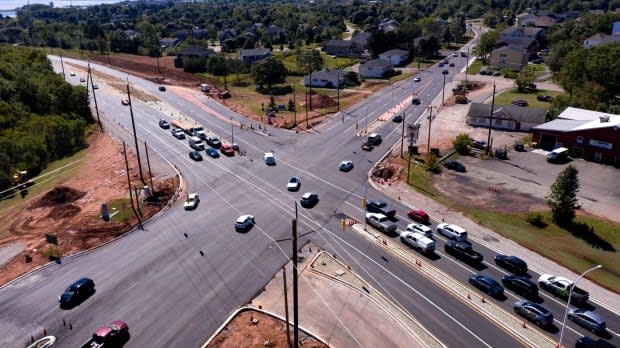'A price on carbon… is the way forward,' P.E.I. premier says about next deal with Ottawa
Prince Edward Island's current agreement with Ottawa over carbon pricing expires Mar. 31, 2021, and while negotiations on a new pact have been underway for some time, there's no agreement yet on a replacement deal, according to Premier Dennis King.
"What I would like to see from these negotiations would be a plan that all Islanders can get behind, and an indication of our support of the federal initiatives, and the federal support of our own provincial initiatives" to reduce carbon emissions, King told the legislature Friday.
"I think we all agree that a price on carbon is the way to go to help discourage how we do things and encourage others to change how we do things, whether it's transportation, et cetera."
Two years ago, P.E.I.'s previous Liberal government struck a last-minute deal with the federal government after Ottawa rejected the province's initial proposal — which included no price on carbon for consumers — on the day before the deadline.
The deal quickly worked out saw P.E.I. implementing its own carbon levy at the rate set by Ottawa, but then offsetting prices at the pumps by reducing pre-existing fuel taxes.
Islanders shielded from big fuel tax bump
As a result, prices on gasoline and diesel rose a single cent in 2019 and another cent in 2020. Thus Islanders were shielded from tax increases which in provinces that adopted the federal backstop (like New Brunswick and Ontario) amounted to almost seven cents per litre over two years.
But unlike the federal backstop, the carbon pricing mechanism applied in provinces without a plan of their own that meets federal guidelines, P.E.I.'s program includes no carbon rebate cheques for consumers, something the opposition Greens have been pushing for.
"We've heard from many Islanders that they actually like the idea of a fee and dividend system," Green Leader Peter Bevan-Baker said during question period Friday.
"It would put money directly back in the pockets of Islanders, rather than through government programs."
Everything on the table: King
Asked if such a program is on the table, King responded that "everything is on the negotiating table" with Ottawa.
The province's carbon levy is budgeted to bring in $16.6M this fiscal year, although that figure doesn't account for millions in lost revenues under the province's gasoline tax as a result of the drop in fuel taxes to make way for the carbon levy.
While the province hasn't offered carbon rebate cheques, it has offered millions of dollars worth of incentives to purchase items like heat pumps and solar panels, and committed millions more to building active transportation corridors to make walking and cycling easier.

Whatever deal is struck, King said it's likely to result in Islanders paying more for emissions.
"A price on carbon, I think, is the way forward, to be honest," he said. "I think that's where the federal government is going to continue to come down on this and it's our job to work with them."
A price on carbon, I think, is the way forward, to be honest. I think that's where the federal government is going to continue to come down on this and it's our job to work with them. - P.E.I. Premier Dennis King
King said Islanders "need to have an idea" where government is headed with its carbon pricing policy, and thus said he would hope to share some details and gather public input before signing a new deal with the federal government.
In the 2019 election campaign, King called the carbon levy "a punitive tax" for residents of a mostly rural province who rely on their vehicles to get around.
But he wouldn't say at the time whether his party would keep the tax or try to scrap it.
This is his government's first opportunity to develop a carbon pricing deal with Ottawa.
More from CBC P.E.I.

